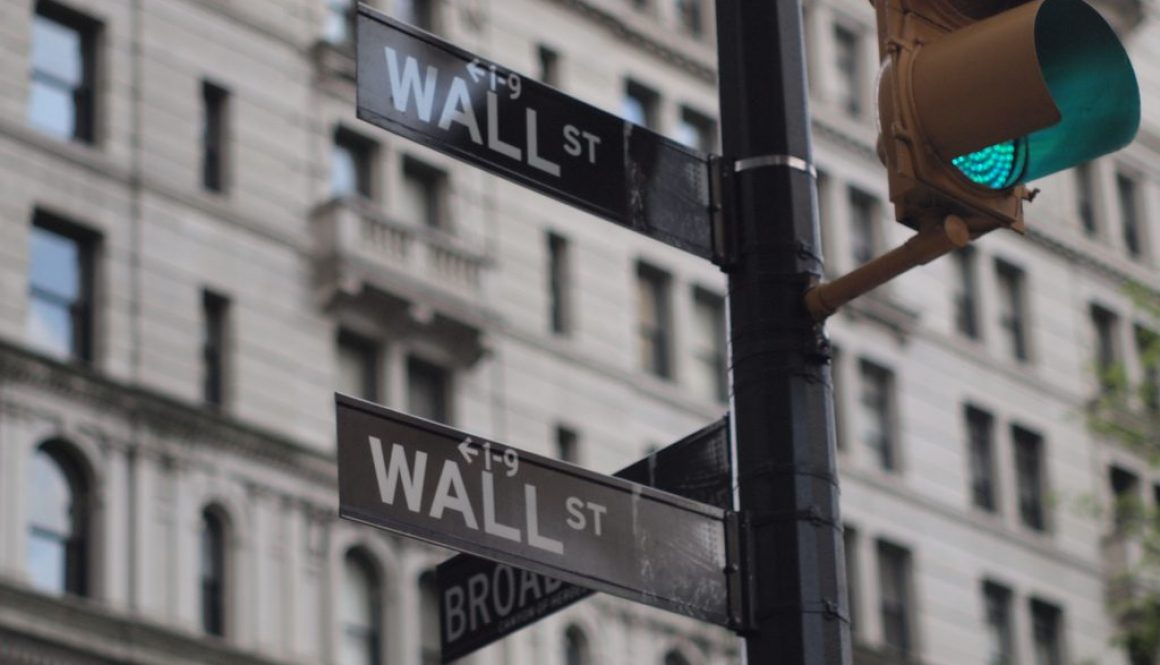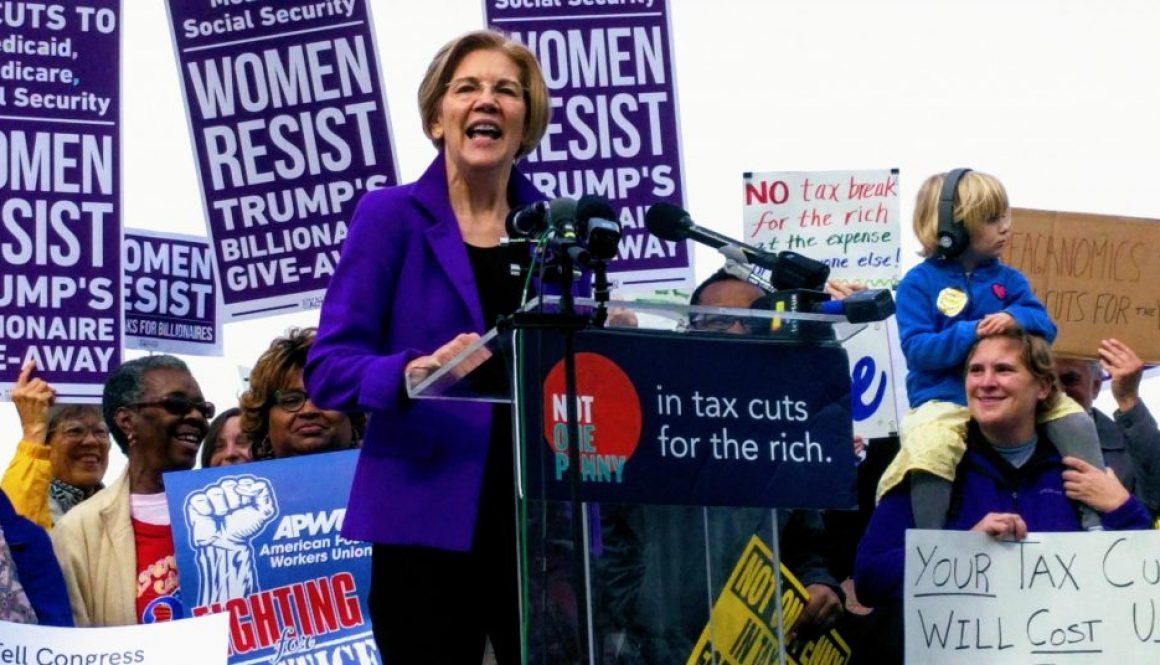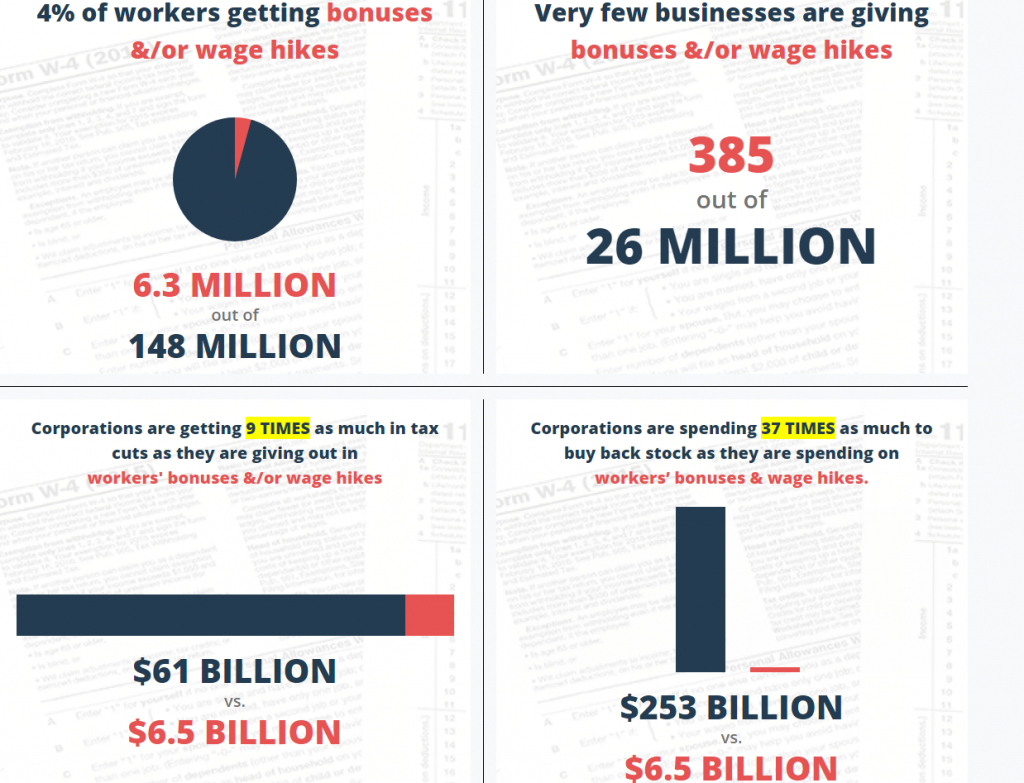By Supporting the Bank Lobbyist Act, the U.S. Chamber Puts Wall Street Profits Before Taxpayers
After the financial industry’s crash in 2008, taxpayers footed a bill for hundreds of billions of dollars for bank bailouts. In the wake of the crash, the U.S. government failed to prosecute any of the top bankers responsible for it. And, last December, the G.O.P. passed a tax cut that showered more wealth on bankers than any other sector. In so many ways, the sector responsible for a global economic meltdown has been rewarded, not punished, for their misconduct.
Apparently, this lack of consequences isn’t good enough for the U.S. Chamber of Commerce. After the U.S. House of Representatives passed S. 2155, dubbed the “Bank Lobbyist Act” by Sen. Elizabeth Warren, on May 22, the Chamber released a statement applauding the passage of the banking deregulatory bill (which was subsequently signed into law by the president). The Chamber pushed hard for this bill: it issued key letters to both the Senate and House, and hosted an event earlier in the year with acting CFPB director Mick Mulvaney and Small Business Administrator Linda McMahon calling for “bank relief.” S. 2155, which reduces oversight over many banks and rolls back a number of the consumer protections enacted in the Dodd-Frank Act’s reforms, is just the sort of giveaway to Wall Street that the Chamber has consistently advocated for.
As is the Chamber’s M.O., advocating for this bill was couched in the language of “restoring small business lending” and abolishing “one-size-fits-all regulations” that were supposedly hampering small community banks. The problem is that that’s not an accurate reflection of the country’s economic landscape prior to the bill’s passage, nor is it a good description of what the bill actually does.
The reality is that the “Bank Lobbyist Act” reduces oversight on 25 of the 38 biggest banks. It strips away many critical consumer protections, including provisions to prevent racial discrimination in lending. It removes many of the guidelines keeping banks from engaging in the same sort of risky gambling activity that led to the crash just ten years ago. And, of course, when banks gamble with their deposits, those are funds that are not being used for the loans people need to buy a home or start a business. Allowing this sort of risky banking practices is setting up American taxpayers to potentially be on the hook for another bailout on their dime should the financial sector crash again.
As for those supposedly hamstrung banks the Chamber is supposedly selflessly looking out for? They were already doing just fine before the bill passed. The industry reaped a record $56 billion in net income in the first quarter of 2018. Even the small banks, whose financial wellness the Chamber prioritizes in its PR materials, were hardly suffering; loan balances at community banks rose significantly more in 2017 than across all banks. And the Chamber claims that small business owners have been hobbled by a lack of availability of credit in recent years, but according to the Federal Reserve’s September 2017 report, credit availability for small businesses has greatly improved in recent years and reached a stable point. It seems community banks and small businesses are just a smokescreen to make this Wall Street giveaway, the true goal of the bill, more palatable.
After the 2008 crisis, bankers did just fine. It’s the American people who suffered, losing countless jobs, savings, and homes. For the U.S. Chamber, it looks like risking a repeat of the Great Recession is worth it for the sake of Wall Street lining its pockets.
U.S. Chamber Watch is a project of Public Citizen. If you’d like to learn more about the Chamber, you can always visit us on www.chamberofcommercewatch.org or follow us on Facebook and Twitter.
Photo credit: Flickr user freshwater 2006 (Trump Tower)
[CC BY-NC 2.0]



